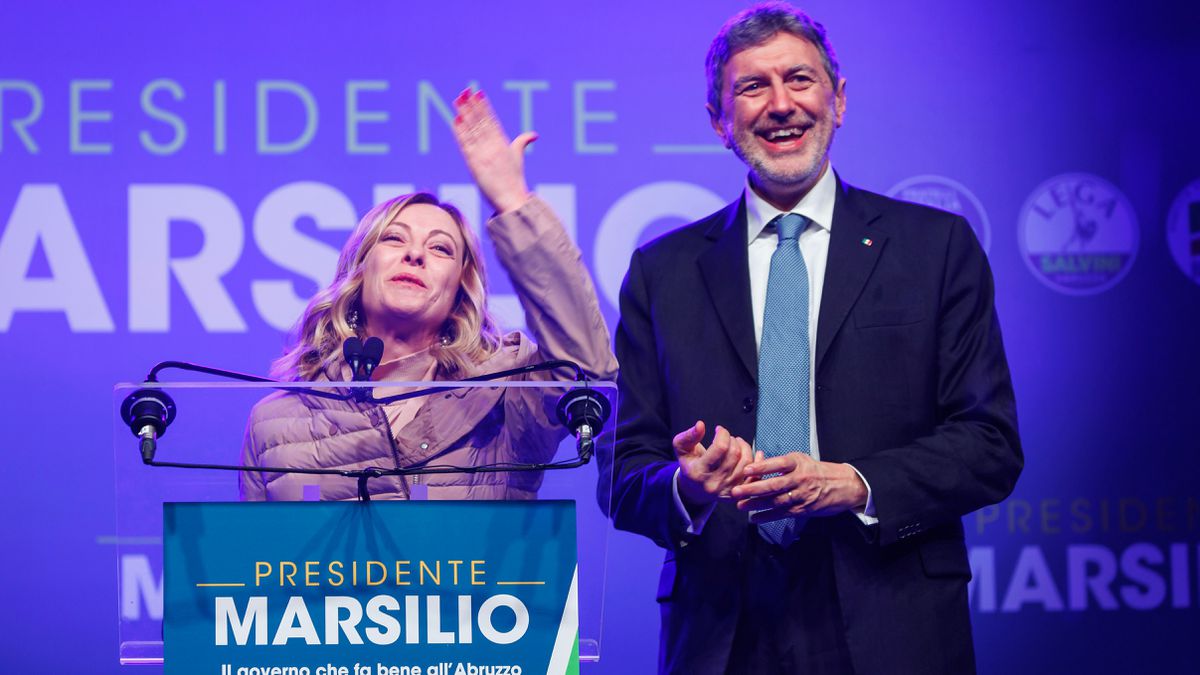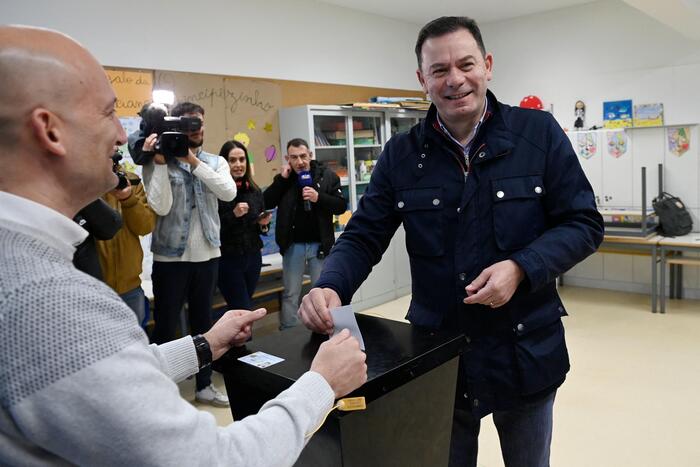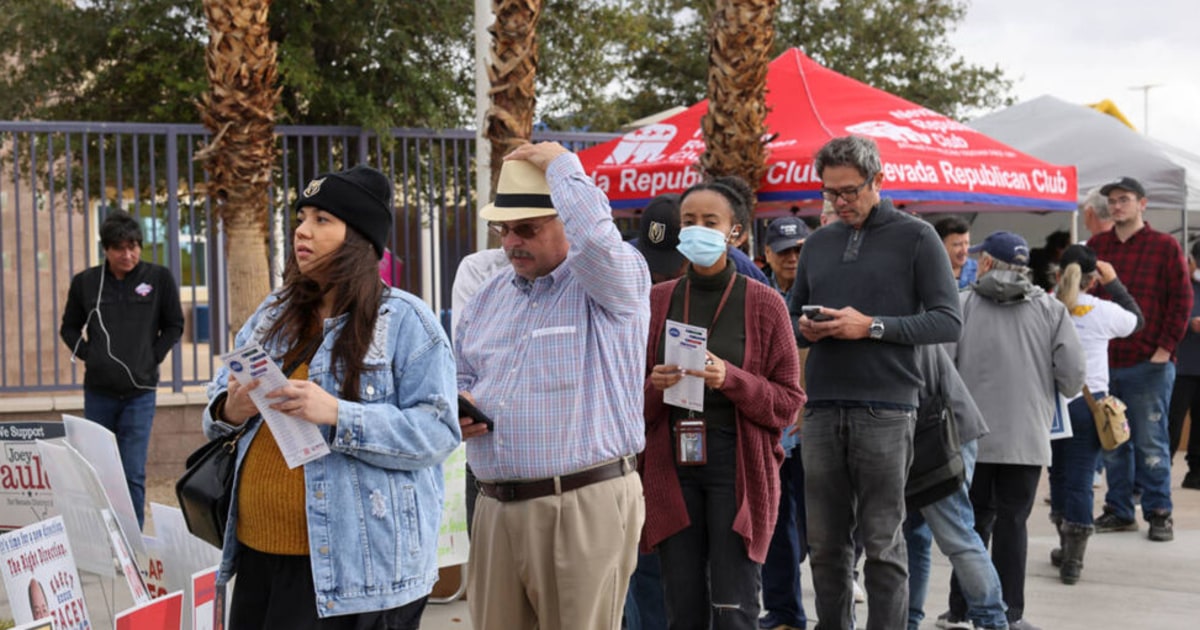By W. Joseph Campbell - The Conversation
The campaign plot appears to be solidifying, as polls show Democrat Joe Biden holding a sizable lead over the president, Republican Donald Trump.
But this advantage may not be insurmountable, and the election is not over yet.
The history of polls in modern American elections suggests that
the bottom line could be altered if a series of disruptive scenarios occur.
None of the following scenarios in which the narrative is altered can be considered a certainty.
But only one is quite implausible.
They are all recounted in my latest book,
Lost in a Gallup: Polling Failure in US Presidential Elections
.
Here are five possible scenarios for these choices, in order of probability.
In honor of fairness, each of them is accompanied by realistic reasons why they would not happen.
1. Let a powerful surprise at the end of October alter the campaign
Surprising and unexpected events have occurred often enough in presidential election campaigns to be almost to be expected.
Remember James Comey's announcement 11 days before the 2016 election that the FBI had reopened its investigation into the Hillary Clinton emails?
The announcement about the emails of Democrat Hillary Clinton hurt her in the final stretch of the presidential race.
It is possible that this announcement changed enough votes in favor of Trump in the most contested states.
For the course of things to be altered in 2020, the October surprise would probably have to be something of a public gaffe on Joe Biden's part, a moment like when he called a woman a "lying pony soldier with the face of dog ", which would indicate that he is not up to the position of president.
[Voter intimidation complaints multiply in key states in presidential election]
While
Biden's gaffes, hype and incoherent comments
have taken place frequently during the 2020 campaign, they have not been focused or dramatic enough to hurt against his lead in the pre-election polls.
Why won't it happen?
Presidential elections may become immune to late October surprises, given the popularity of early voting and extensive voting by mail.
In this way, millions of Americans will have voted for their candidate long before Election Day, which will lessen the impact of any surprises that may occur later this month.
2. That there are big errors in the surveys in key states
In states like Wisconsin and Michigan, which were crucial to the 2016 outcome, pre-election polls gave Democrat Hillary Clinton a clear advantage, an advantage that evaporated when the votes were counted.
Joe Biden leads Trump by wide margin in polls
Oct. 6, 202001: 48
Clinton's lead in the Wisconsin polls, for example, was 6.5 percentage points at the end of the campaign, and Trump took that state by less than one point.
Such mistakes are not entirely ruled out in 2020.
Why won't it happen?
This scenario is essentially a repeat of what happened in 2016. If polling history has taught us anything, it is not to expect elections (or polling failures) to repeat themselves.
Not only that, but polls in battleground states are under far more scrutiny in 2020 than they were four years ago.
Those elements can make a scenario like this unlikely.
3. Let the same thing happen as in 1996 with Bill Clinton
This is a nuanced scenario reminiscent of the re-election of Democrat Bill Clinton in 1996, when he defeated Republican Bob Dole by 8.5 percentage points, a comfortable margin, though not as strong as many polls had anticipated.
[The five keys to pay attention to to know who can win the elections]
In late October 1996, veteran California pollster Mervin Field declared that Clinton was headed for as big a victory as
Ronald Reagan's landslide 18-point victory in 1984, when he won in 49 states.
The 1996 polls did not rule that Clinton would win, but some did stray far from what the vote ended up being.
For example, the CBS News poll at the end of the campaign estimated Clinton's lead at 18 points, making a 10-point error.
The Clinton family salutes supporters following Bill Clinton's election victory in 1996. Sygma via Getty Images
Why won't it happen?
The failure of the polls in the presidential elections is rarely repeated.
A repeat of the 1996 scenario depends on Biden maintaining
a double-digit lead in the polls in the final stages of the campaign
, a time when presidential careers tend to harden.
Biden's leadership in national polls, according to a compilation made by the RealClearPolitics website, stood at 8.6 percentage points two weeks before Election Day.
4.
Shy Trump voters to
emerge en masse
in contested states
This theory holds that some Trump supporters hide their preferences from pollsters because they want to avoid criticism.
They are reluctant to acknowledge support for such a divisive candidate.
[What to do if you change your mind and decide to vote in person and not by mail]
Because they are cautious about their voting intentions, these undercover supporters distort the poll data because they are allegedly too hard to find or don't respond candidly when interviewed.
By running in large numbers, this theory points out,
timid
pro-Trump
voters
could tip the electoral vote toward the president.
Why won't it happen?
These voters probably don't exist in large enough numbers to disrupt a national election.
Evaluations by pollsters and electoral organizations have suggested this.
Additionally, Trump's outdoor rallies indicate that his supporters are not exactly reserved when it comes to expressing their political preferences.
5. Let there be an epic collapse of the polls as in 1948
The famous
Dewey defeat of Truman
elections
marked a shocking and never after repeated failure of national electoral polls.
George Gallup and other pollsters confidently predicted President Harry Truman's defeat to Republican Thomas E. Dewey, and their polls helped the nation's press and pundits to have expectations about what would happen.
As the years have passed, the surveys have become more reliable, with more participants and more sophisticated methods.
Getty Images
But Truman won by 4.5 percentage points in the biggest poll embarrassment in US presidential history.
Why won't it happen?
Surveys since 1948 have become more sophisticated in their techniques and more numerous in participants.
It is almost inconceivable that contemporary electoral pollsters will be deeply and uniformly wrong in 2020. While what happened in 1948 offers an intriguing precedent,
it is a highly unlikely scenario.
W. Joseph Campbell is Professor of Communication Studies at the American University School of Communication. This article was originally published on The Conversation. Read the original in English here.









